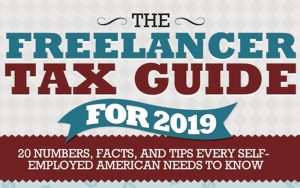Q: Can I avoid my home-state income tax by registering my business in a no-tax state like Wyoming or Nevada?
A: No. Your resident state taxes income where you live and work, regardless of where the entity is registered. Only changing legal residency and shifting business activity can eliminate that tax.
TL;DR:
- Pass-through income follows you. Sole props, partnerships, and S-Corps all land on your personal return, so your resident state taxes 100% of it.
- “183-day rule” is a myth. States look at where you spend the most days – three months in-state can still make you a resident.
- C-Corp commission schemes flop. Sham commissions to a no-tax C-Corp trigger dividend re-characterization, double tax, and potential criminal exposure.
- Customer nexus counts. States can tax non-residents who sell to in-state customers even with zero physical presence (Bindley v. FTB).
- Unregistered “foreign” entities risk insurance & lawsuit blocks. Failure to register where you operate can void coverage and bar you from state courts.
We’ll often be asked if state income taxes can be avoided by registering an entity in another state. “Yes, I live in New York, but my entity is registered in Wyoming. So I don’t have to pay any state tax on that, right?”
Unfortunately, that’s just not how things work. Partly due to compliance and partly just the nature of how income taxes flow for pass-through entities.
Why Registering in Another State Doesn’t Shield You from Tax
If you have a pass-through entity (sole proprietorship, S-Corp, partnership, or an LLC taxed as a sole proprietorship, S-Corp, or partnership), then all of the income from that entity passes through to you personally.
And if you are a resident of a state with an income tax, all of the income you earn while a resident of that state is taxable for the purposes of state income taxes. This happens irrespective of where the entity was registered or where the money is earned.
For example, let’s say you live in Hawaii but set up an S-Corp in Nevada. Nevada does not have a state income tax, but that fact doesn’t override the rules in your home state. Because you were a resident of Hawaii for the entire year, all of that income – including the income from the Nevada entity – is taxable to Hawaii.
There is a carve out for taxes you actually do pay to another state so that you don’t pay tax on the same income twice. This happens a lot for people who travel for work. As an example, let’s say you live in North Carolina but worked several months in Virginia – during which you job withheld Virginia income tax. When you file your North Carolina return you will receive a tax credit for any amount of VA tax you paid – thereby reducing your NC tax liability.
But that only works if you actually paid tax to another state. If you were on work assignment in Florida while a resident of North Carolina, you do not get any sort of offset because no income tax would have been paid to Florida.

“I’m Not in the State Half the Year – Does That Matter?”
One peripheral question we’ll get is if the state tax can be avoided if the taxpayer spent less than six months in their home state.
This comes up often with digital nomads and entertainers. For example, someone may reside in Los Angeles but spend 10 months on tour or traveling. Can they avoid California tax in that instance? After all, they spent less than half the year in the state.
Unfortunately, that’s not the way the states view it. We’ll use California as an example because California is one of the more aggressive states on this issue. California courts have noted that residency is not determined by California vs. every other state in aggregate, but by which singular state you spend the MOST time in. If you spend three months in California and a maximum of two weeks in any other state, California will still likely consider you to be a California resident.

C-Corp Schemes and the Myth of Hidden Income
We briefly noted this in our article on the fraudulent guru math for C-Corps, but part of the pitch those gurus will assign as a benefit of the C-Corp is avoiding state income taxes.
The basic crux of their pitch is this: create a C-Corp in a no income tax state like Nevada. Then pay commissions from your S-Corp to the C-Corp. This moves the earnings out of your home state’s jurisdiction and thereby not subject to state income tax at the corporate level. And so long as you do not take distributions from the C-Corp, none of the income will hit you on the personal level as a resident of that state.
The issue is that this maneuver is barely legal (if it is legal at all) and would not withstand any scrutiny. There have been countless cases of people going to prison for trying to move money from the US to no income tax jurisdictions by creating sham commission agreements (US v. Strachans SA in Liquidation, US v. Total S.A., US vs. Jason Corey – just to name a few). Using that same mechanism to avoid state taxes runs afoul of those same issues. There is also the problem that most of these commission agreements have little to no economic substance, which can cause the IRS to disallow the transaction entirely.
Nexus and the Power of Customer Location (Bindley v. FTB)
We’ll keep using California as an example given how aggressive they are in their enforcement and look at the case of Bindley vs. FTB, 2019-OTA-179P. Blair Bindley was a screenwriter living in Arizona. He had no business presence in California, no employees in California, and never even set foot in the state.
He did, however, provide screenwriting services to California companies.
Based on that, California still claimed (and the appeal court upheld) that he owed CA tax on his income – because his screenplays were sold to companies in California.
If California can show nexus just based on the customers, how much more easily could a state do it with someone who was actually living in the state and whose only removal from it is registering the entity elsewhere?

Legal and Insurance Risks of Improper Registration
Beyond the issues noted above, there are also compliance issues you will run into.
Even if your entity is domiciled in one state, if you have business operations in other states you are required to register in those states as “foreign” entities. You may even be required to register locally for business licenses, permits, etc.
Failure to do so could not only set you up for tax penalties, but also could also expose you to both legal and insurance-related consequences.
Most states have something within their Model Business Corporation Acts (MBCA) that forbids foreign entities from filing lawsuits until they are registered with the state (California Corporations Code § 2105 and N.Y. Business Corporation Law § 1312(a) are a few examples).
And your insurer may decline coverage if it is found you are transacting business in locations you are not licensed to operate and did not disclose to the insurer. That is a material misrepresentation to the insurance company and courts have allowed insurance companies to rescind policies because of misrepresentations (Tudor Insurance Co. v. Hellickson Real Estate). In Grange Mutual Casualty Co. v. Bennett, the court allowed coverage to stand – but only because the insurer failed to act after discovering the misrepresentation. That’s the exception, not the rule.
Conclusion: There’s No Shortcut – But There Is Strategy
These topics can be complex. If you are operating in multiple states, careful planning with your CPA may be required. But simply registering your business in another state or spending less time in your home state are not magic bullets that magically alleviate state income tax requirements.
FAQ
Does spending fewer than 183 days in my home state exempt me from tax?
No. States compare days spent in each state, not total days out. If you spend the most time in your home state – even a few months – it can still claim residency (see California FTB guidance).
What if I form a Nevada C-Corp and leave profits inside it?
The IRS and states treat undistributed profits as taxable when tied to sham commissions or thin substance. Cases like U.S. v. Strachans SA show these schemes collapse under audit. You will also possibly run afoul or Accumulated Earnings Tax (AET) and Personal Holding Company (PHC) rules
Can a state tax me if I never set foot there?
Yes. In Bindley v. FTB, California taxed an Arizona writer who sold screenplays to California studios – customer location alone created nexus.
Do I have to register as a “foreign” entity in every state where I have clients?
If you have continuous business activity (salespeople, contractors, inventory, or services performed), most states require foreign registration. Failure can void lawsuits (CA Corp §2105) and insurance (see Tudor v. Hellickson).
If I move my personal residency, can my old state audit prior years?
Yes. Residency changes affect future tax, but prior-year obligations remain audit-able for the normal statute of limitations (typically 3–4 years).
Any accounting, business, or tax advice contained in this communication, including attachments and enclosures, is not intended as a thorough, in-depth analysis of specific issues, nor a substitute for a formal opinion, nor is it sufficient to avoid tax-related penalties.




